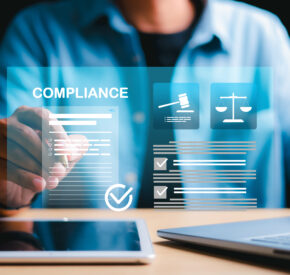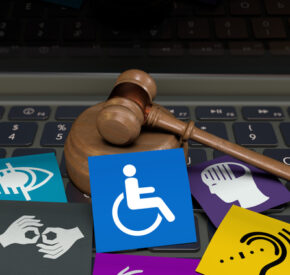Mental Health is Part of Wellness
Prioritizing mental health at Tamman

There is a difference between a broad approach to wellness and mental health in the workplace. Wellness is deliberate, mostly preventative and generalized. Conversely, even now, mental health can carry baggage and stigma. Most folks are happy to discuss their latest vacation or a morning meditation or yoga routine. Yet the fact that they regularly see a therapist to manage past trauma is different.
Discussions around wellness in the workplace are not groundbreaking or new. This is certainly true for Tamman, as we have worked hard to create a supportive climate that often discusses the importance of stepping away from screens and taking time for oneself. Even when Tamman was just starting, co-founders Jeff Tamburino and Mike Mangos differentiated themselves from competitors as a place that would focus on employees’ needs, knowing that if you give people the tools, knowledge, and support to do a great job, then people would serve their clients better. As Jeff has stated many times, ‘Well supported people, support people well.’ For Tamman, it’s a slight deviation from the old adage that the customer is always right. In this case, the employee is their customer. Knowing that if they are taken care of, then the client downstream will be taken care of too.
Our Flex 40 policy
As Tamman grew, it became increasingly important to back up this philosophy with policies and procedures on the ground that provided comprehensive and holistic support. There are many examples to point to, but one of the cornerstones of Tamman’s recognition that people need to take care of themselves while taking care of work is our Flex 40 policy. The Flex 40 recognizes that our people are professionals, so we treat them with the freedom and respect that comes with that. We expect folks to work a minimum of 40 hours a week, and as long as client deadlines get met and there is no undue burden placed upon their teammates, they can get these 40 hours done in the way that is best suited to them. That means if someone wants to take a longer lunch to meet up with out-of-town friends or they find that they work best early in the morning or later at night, they are free to take that time as needed. The Flex 40 has been in place since 2018, and it has been embraced across the board without issue.
Employee Assistance Program (EAP)
Conversations started shifting in March of 2020 and the advent of the pandemic. We found that it wasn’t enough just to talk about wellness. People were not only continuing to juggle their work but also juggling all of the emotions and news that were coming seemingly in wave after wave after wave. Some folks were home alone and not going out. Previously if someone came into work and had a bad day, a caring colleague and friend could take them for a walk to the coffee shop and talk about it. Mental health could be seen, monitored, and encouraged. Direct conversations were easier to have when they presented themselves directly in front of you.
Cameras and blurry backgrounds have a way of obscuring these needs. Gone was the quiet outreach and encouragement of colleagues. If someone had a need, it was their responsibility to seek it out. For the first year of the pandemic, Tamman took the approach of reminding people of all the support systems that we had. Tamman has a robust benefits package that includes health coverage paid entirely by Tamman, an Employee Assistance Program (EAP), which is a concierge service of referrals to everything from legal assistance to homework help. As with most health plans in most workplaces, we have teledoc and mental health supports available. We started a Slack wellness channel and added wellness moments to meetings. We tried to make sure people knew that resources were there. This approach is…adequate. It is generalized and safe. It is distant.
Health Reimbursement Account (HRA)
As 2022 continued on, we heard from a few employees that this approach was not enough. They were struggling to find mental health providers who took any insurance. In 2022, we started conversations around what it would take to connect people to more meaningful mental health professionals. Our partners at GMG Insurance presented us with the idea for something called a Health Reimbursement Account (HRA). An HRA is a way for Tamman to invest a set number of dollars and focus those dollars on the mental health needs of our employees and their families. In this way, while we may not be able to cover the full cost of mental health appointments and mental health needs, we made it clear that we will be on part of this journey with them. Mental health is just as important as physical health and should have the same resources put behind it for all of our team members. More than that, Tamman is committed to talking about mental health openly. Our CEO, Jeff, talks about his therapy openly, setting the example for all the leadership at Tamman to do the same. There is no stigma around mental health issues at Tamman. We are all in recovery for something, and taking care of one’s mental state is as similar as taking care when someone is dealing with a physical illness.
Just as critical is the recognition that relationships in the workplace matter. Taking the time to connect with colleagues in ways that are not just work/task related, but where we get to know one another too. This is a form of preventative mental health too. Remote work requires that little extra diligence to connect and explicitly care for one another.
We are excited about all the ways we are open about mental health at Tamman, especially the 2023 rollout of our HRA. We would be happy to share our experience with it with other companies interested in learning more.
To put our thoughts into action, we want to share some resources our employees use for mental wellness at the workplace.
Tools we use
Headspace is a meditation app with guided exercises on handling workplace stress, returning to the workplace, and music for focusing while working from home.
Calm is another meditation app with a variety of content for handling day-to-day workplace experiences and guided sleeping stories voiced by celebrities such as blind Paralympian Lex Gillette, LeBron James, and Eva Green.
The Mirror (with a companion app) is an extensive home workout studio with classes on various exercises, from yoga to boxing to kettlebells.
Growtherapy is a website used within our company to find a mental health therapist.
Ekhart Tolle’s book The Power of Now was mentioned as a helpful resource and is available online.





